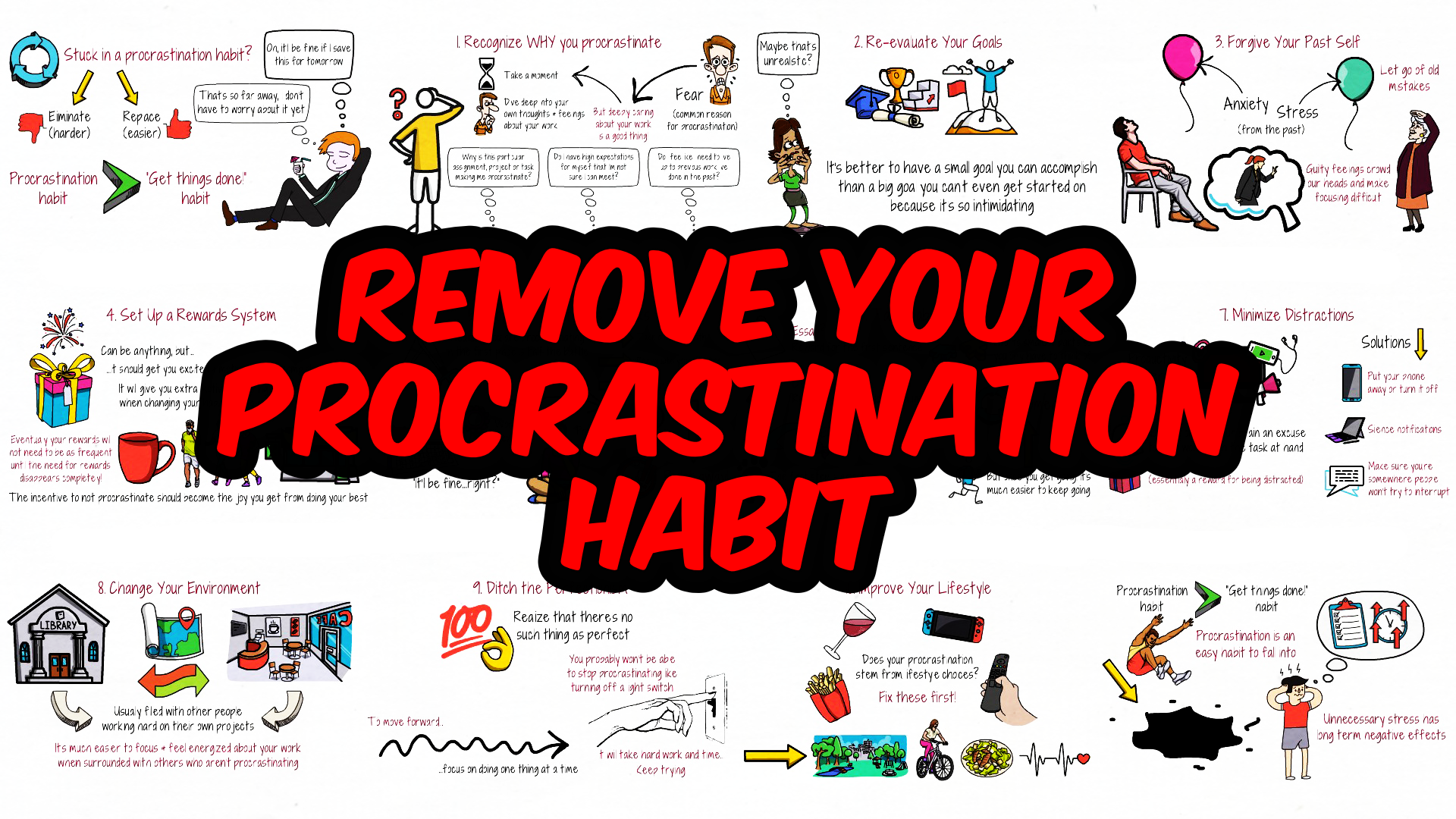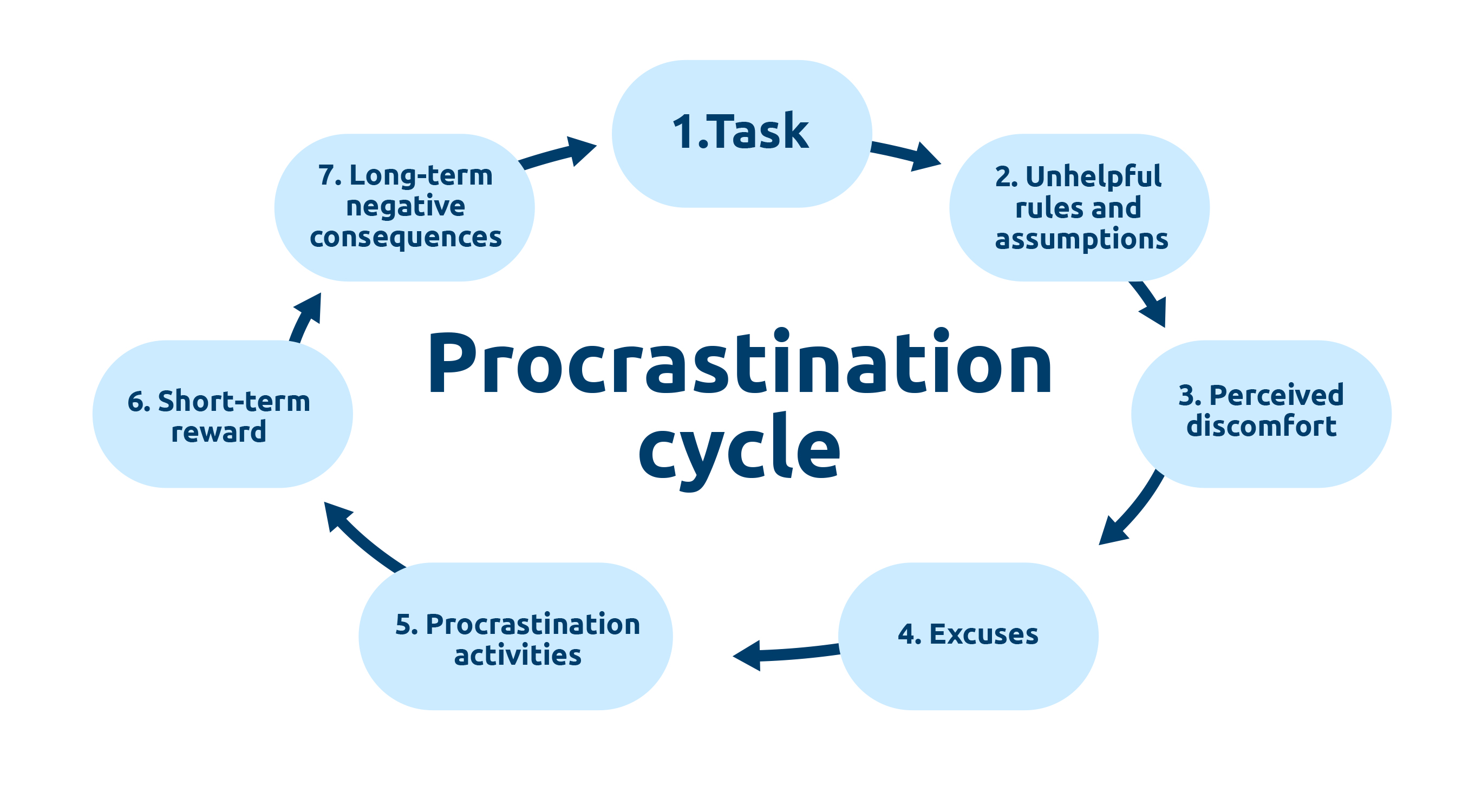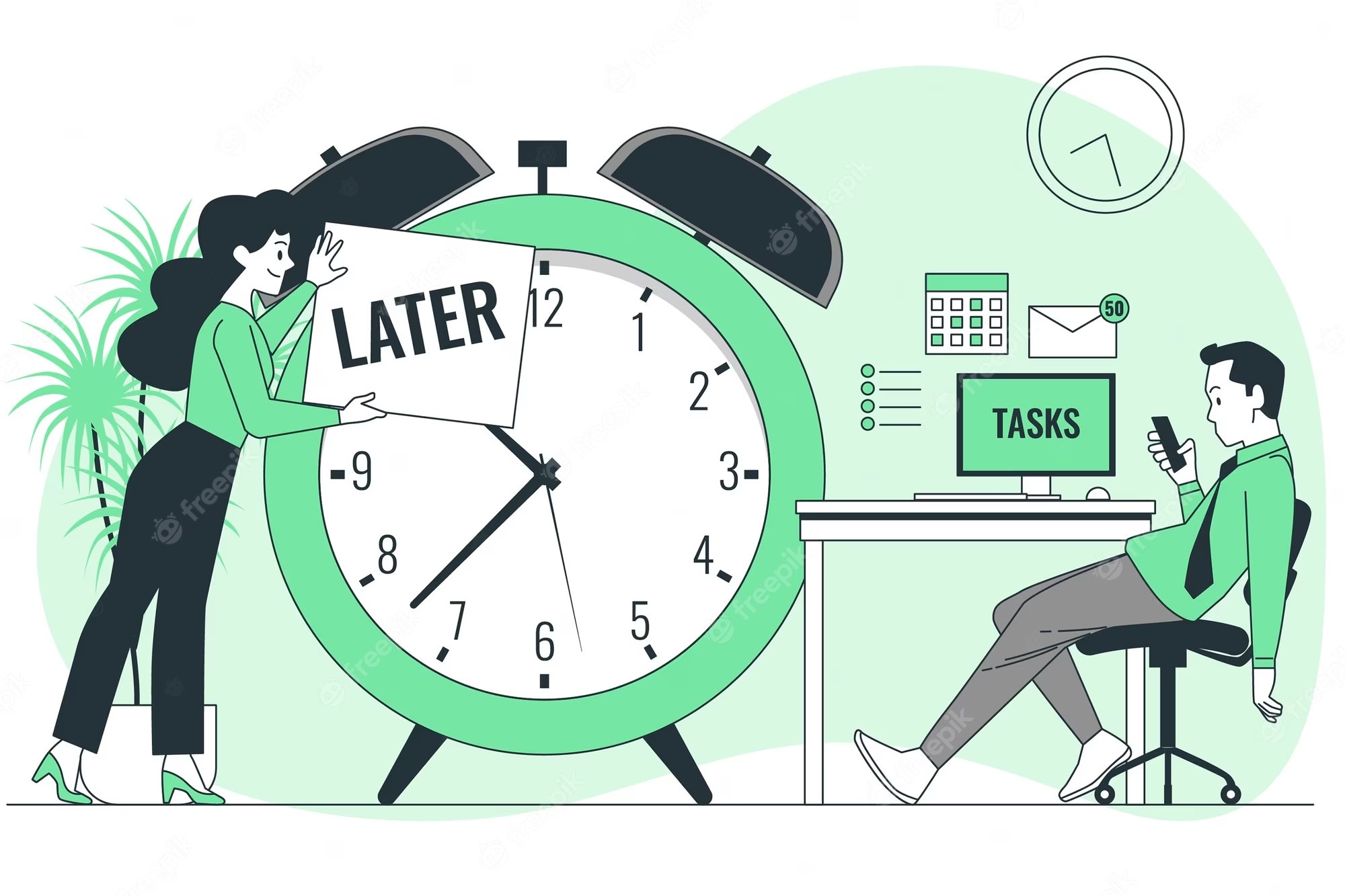How To Break The Habit Of Procrastination

Procrastination, the art of putting off tasks until the last minute (or beyond), plagues individuals across all walks of life, hindering productivity and increasing stress levels. Understanding the roots of this pervasive habit and implementing effective strategies can be the key to unlocking one's full potential.
This article delves into practical, actionable methods for breaking the procrastination cycle, drawing on insights from psychological research and expert advice. It aims to provide readers with a toolkit to identify their procrastination triggers and develop sustainable habits for a more productive and fulfilling life.
Understanding the Procrastination Puzzle
Procrastination isn't simply laziness; it's often rooted in more complex psychological factors, according to Dr. Timothy Pychyl, a professor of psychology at Carleton University and author of "Solving the Procrastination Puzzle." He suggests it's primarily an emotion regulation problem.
Tasks that evoke negative emotions – fear of failure, boredom, anxiety – are more likely to be avoided. The immediate relief from avoiding the task reinforces the procrastination habit, creating a vicious cycle.
Identifying Your Procrastination Style
The first step in overcoming procrastination is understanding your particular procrastination style. Are you a perfectionist, fearing that your work won't be good enough?
Perhaps you're a dreamer, overwhelmed by the scale of the task, or a crisis-maker, thriving on the adrenaline rush of last-minute deadlines? Recognizing these patterns is crucial.
Once you identify your style, you can develop strategies to address the underlying cause.
Strategies for Conquering Procrastination
Experts offer a range of techniques to combat procrastination, focusing on breaking down tasks, managing time effectively, and cultivating a more positive mindset.
One popular technique is the Pomodoro Technique, involving working in focused 25-minute intervals followed by short breaks. This method, advocated by Francesco Cirillo, creator of the technique, can help overcome the initial inertia of starting a task.
Another effective strategy is task decomposition – breaking large, daunting projects into smaller, more manageable steps. This makes the task seem less overwhelming and provides a sense of accomplishment as you complete each step.
Time Management and Prioritization
Effective time management is essential for preventing procrastination. Prioritize tasks using methods like the Eisenhower Matrix, categorizing tasks based on urgency and importance.
Focus on tackling the most important tasks first, even if they're the most challenging. Learning to say "no" to non-essential tasks can also free up time and energy for more important endeavors.
According to a study published in the Journal of General Psychology, individuals who consistently prioritize tasks based on their values and long-term goals experience less procrastination and greater life satisfaction.
Cultivating a Growth Mindset
A fixed mindset – believing that your abilities are fixed traits – can contribute to procrastination. Dr. Carol Dweck, a Stanford University psychologist, emphasizes the importance of a growth mindset.
Embrace challenges, view failures as learning opportunities, and focus on progress rather than perfection. This can reduce the fear of failure and make tasks seem less daunting.
Self-compassion is also crucial. Instead of beating yourself up for procrastinating, acknowledge the struggle and reaffirm your ability to overcome it. Treat yourself with the same kindness you would offer a friend.
The Impact of Overcoming Procrastination
Breaking the habit of procrastination can have a profound impact on an individual's life, leading to increased productivity, reduced stress, and improved well-being. It fosters a sense of control and empowerment, allowing individuals to pursue their goals with greater confidence.
Furthermore, a more productive and less stressed individual also contributes positively to their community, becoming a more reliable and engaged member of society.
By implementing these strategies and fostering a greater understanding of the underlying causes of procrastination, individuals can break free from this detrimental cycle and unlock their full potential.


















